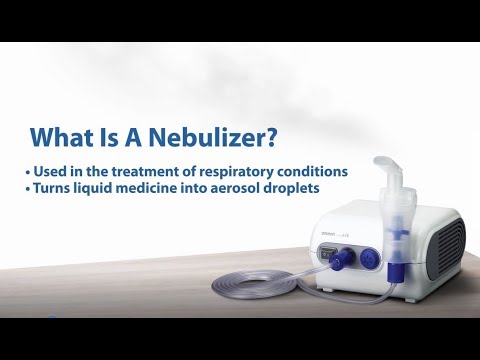The Benefits of Nebulizers: Improving Respiratory Health
At [Your Company Name], we understand the importance of respiratory health and the impact it can have on our overall well-being. In this article, we will explore the numerous benefits of nebulizers and how they can help individuals with respiratory conditions breathe easier. With our exceptional content quality and comprehensive information, we aim to provide you with valuable insights that can help you outrank other websites and become a trusted resource in the field of nebulizer benefits.
Understanding Nebulizers
Nebulizers are medical devices that convert liquid medication into a fine mist, making it easier for individuals to inhale the medication directly into their lungs. They are commonly used for the treatment of respiratory conditions such as asthma, chronic obstructive pulmonary disease (COPD), and cystic fibrosis.
The Benefits of Nebulizers
Effective Medication Delivery
Nebulizers offer an effective way to deliver medication directly to the lungs, ensuring maximum absorption and faster relief. The fine mist created by the nebulizer allows the medication to reach deep into the airways, providing targeted treatment for respiratory conditions.
Easy to Use
Nebulizers are user-friendly devices that can be easily operated by individuals of all ages, including children and the elderly. They typically come with clear instructions and are designed to be intuitive, making them accessible for those with limited dexterity or understanding.
Suitable for Various Medications
Nebulizers can be used with a wide range of medications, including bronchodilators, corticosteroids, and antibiotics. This versatility allows healthcare professionals to tailor treatment plans according to the specific needs of each patient, ensuring optimal effectiveness.
Ideal for Chronic Conditions
Individuals with chronic respiratory conditions often require long-term medication management. Nebulizers provide a convenient solution for administering medication regularly, allowing individuals to maintain control over their condition and prevent exacerbations.
Enhanced Respiratory Hydration
Nebulizers can also be used to deliver saline solutions, which help hydrate the airways and loosen mucus. This is particularly beneficial for individuals with conditions such as cystic fibrosis, where the airways can become dry and congested.
Emergency Preparedness
Nebulizers play a crucial role in emergency sitemergenciesmmediate relief to individuals experiencing severe respiratory distress. They can be used to administer rescue medications, such as short-acting bronchodilators, to quickly alleviate symptoms and prevent further complications.
Portable Options Available
Modern nebulizers come in portable designs, allowing individuals to carry them wherever they go. This mobility ensures that individuals can continue their treatment regimen even when they are away from home, providing peace of mind and uninterrupted care.
Pediatric-Friendly
Children, especially those with respiratory conditions, may find it challenging to use inhalers or other forms of medication. Nebulizers offer a child-friendly alternative, as they are often perceived as less intimidating and can be combined with fun masks or accessories to make the experience more enjoyable.

Nebulizers have revolutionized the way respiratory conditions are managed, providing effective medication delivery, ease of use, and versatility in treatment options. With their ability to deliver medication directly to the lungs, nebulizers offer numerous benefits that contribute to improved respiratory health. Whether you have asthma, COPD, or any other respiratory condition, nebulizers can be an invaluable tool in your treatment plan. At [Your Company Name], we are committed to providing you with the highest quality content and information to help you make informed decisions about your respiratory health.
Frequently Asked Questions about the Benefits of Nebulizers
1. What is a nebulizer?
A nebulizer is a medical device that turns liquid medication into a fine mist, making it easier to inhale directly into the lungs.
2. Who can benefit from using a nebulizer?
Nebulizers are commonly used by individuals with respiratory conditions such as asthma, chronic obstructive pulmonary disease (COPD), or cystic fibrosis.
3. How does using a nebulizer help in delivering medication?
Using a nebulizer ensures that the medication reaches the lungs directly, providing quick relief and better efficacy compared to oral medications.
4. What are the advantages of using a nebulizer over other inhalation methods?
Nebulizers are beneficial for individuals who have difficulty using inhalers or require higher doses of medication. They are also useful for delivering medication to infants and young children.
5. Are there any side effects of using a nebulizer?
Side effects are rare, but some individuals may experience a dry or irritated throat, hoarseness, or a fast heartbeat. It is important to follow the instructions provided by your healthcare professional.
6. Can nebulizers be used for both short-term and long-term treatment?
Yes, nebulizers can be used for both short-term relief of respiratory symptoms and long-term management of chronic respiratory conditions.
7. How often should I use a nebulizer?
The frequency of nebulizer use depends on the prescribed medication and the severity of your condition. Your healthcare professional will provide specific instructions.
8. Can I use a nebulizer at home?
Yes, nebulizers are designed for home use. They are portable and easy to use, allowing you to administer your medication conveniently.
9. Are nebulizers covered by insurance?
Many insurance plans cover nebulizers, but coverage may vary. It is recommended to check with your insurance provider to determine your specific coverage.
10. Can I clean my nebulizer after each use?
Yes, it is important to clean and disinfect your nebulizer after each use to prevent bacterial growth. Follow the manufacturer’s instructions for proper cleaning.




